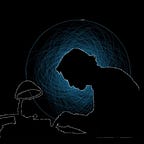IMO, the problem with Privatio Boni is not that it downplays evil as a nonbeing, but rather that it posits good as a being, as substantial and real separate from the actions of people. There is always going to be an irreconcilable problem when we embrace one thing as real and reject it's opposite as unreal. The problem is not the "reality," it's the embracing and rejecting. It's the belief of humans that we can and should divide our experience into categories of good an evil, of things we like and don't like. Metaphorically, that of course is the fruit of the "knowledge" of good and evil as in the Garden of Eden story.
I would say that we humans create good and evil by carving the world into those categories based on our likes and dislikes. Neither good nor evil exist outside of human behavior. At our best, what we mean by good is the human choice to serve others, to sacrifice oneself for the greater good. What we mean by evil is the human choice to serve oneself, to sacrifice others in opposition to the greater good. When we point toward evil in the world, it is always the fruit of some selfish human choice.
Nature (beyond humans and their choices) can be neither good nor evil. What happens in Nature happens because of its nature. For example, an earthquake that kills thousands of people is not "evil," it's the unlucky consequence of living on a planet with moving tectonic plates. Just as living out your natural life with comfort on an island paradise is lucky, not good. Any labels we assign to either are human acts of liking this, disliking that.
On Jung specifically, our shadows are the fruit of this exact process. The shadow is not composed of Archetypal evil. The shadow holds all of the rejected parts of ourselves. All of the things we rejected about ourselves in the course of life because parents, teachers, siblings, peers, churches, etc. shamed us for them and led us to believe they were bad/evil. Other people put their label of evil on aspects of our whole being and to be accepted we stuffed those aspects into our personal unconscious. But nothing about who we are can be "eliminated." All those self-rejected aspects just get buried in the unconscious and congeal there into a personality, a complex. Therefore, shadow work is a matter of re-embracing the rejected aspects of ourselves. Not of reconciling good and evil, but rather of recognizing that our totality, our true Self, cannot be divided into subjective qualities like that.
Whether approaching inner work, as in Jungian psychology, or in our relationship to and understanding of the outside world, the problem of evil disappears when we stop artificially dividing experience into categories.
